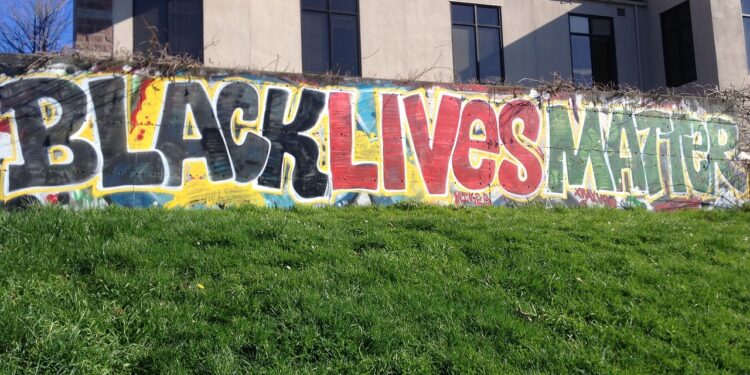
Guest blog by Mark Walley, CEO of STEP
We are a global brand with 30 years’ experience helping families plan their financial futures, but we are quite new to Equality, Diversity and Inclusion (EDI). When I say that, I mean that until last year we had the basics in place for legal compliance, but were not actively engaged in the topic with our people. This changed in the summer of 2020, in the aftermath of the George Floyd murder.
As a professional body whose governance is overseen by members, we took the decision to act after a number of discussions that had started following George Floyd’s death. For our professional members we decided that getting our governance structures right to support our EDI goals was the most important first step for STEP – the Society of Trust and Estate Practitioners.
There is, of course, also a team of colleagues and we employ around 50 in our London office. It is interesting when you look at our statistics:
- 75% of our colleagues are female
- 85% of our people managers are female
- Three out of four directors are male
That is where the data stops. There is some visible evidence of diversity and some knowledge of unseen diversity, but we have never really taken any specific action. Our staff survey revealed some very positive trends: “People in my team go out of their way to help me”; “I feel a strong sense of family in my team”; “My team is fun to work with”; “My manager treats everyone fairly”.
However, less encouraging was feedback on: “This organisation is keen to help people from disadvantaged backgrounds”.
Our colleagues wanted us to do something more to demonstrate we take EDI seriously. So, initially, we ran a poll at an all-staff meeting. This showed that, broadly, people felt we were doing “ok”. There was clearly a need for a more in-depth conversation, so we facilitated discussion group sessions for all employees to talk about experiences of EDI at STEP. There were a number of themes that came out of these wide-ranging discussions:
- The general feeling is that we are doing OK
- Our values and policies are clear
- Our colleagues welcome the open dialogue
- The feeling that being able to bring one’s whole-self to work is important
- The reflection that lots has changed in a positive way in the culture of the organisation
- A recognition that a positive stance on EDI makes us a more attractive employer
We have already implemented a couple of ideas. We are celebrating “calendar” days more (religious festivals/community days/national or international observances). We are also encouraging sharing experiences through our “Windows into Lives” posts on Teams. Here, colleagues share something about themselves; their beliefs, culture, community or a calendar day that others may not know so much about. It has been a great opportunity for colleagues to share and to learn. Through that there has been much greater understanding, appreciation and empathy.
It’s a start. We still have more to do and as we head through 2022, we will be:
- Helping colleagues tackle some unintended impacts (eg. unconscious bias and addressing assumptions in thinking)
- Taking appropriate actions to support those facing/going through the menopause
- Doing more to address the impact of invisible disabilities
- Addressing ED&I in recruitment and on-boarding process
- Being explicit about what we stand for and what expectations are
- Providing clarity on equality of opportunity – with the best person getting the job
- Pursuing greater objectivity in recruitment (both the criteria and the selection process)
We will also keep the dialogue going – both in our meetings and through our Windows into Lives.
Background:
STEP is a global professional body, comprising lawyers, accountants, trustees and other practitioners that help families plan for their futures. We have over 21,000 members in around 96 countries.
Our mission is to inspire confidence in families planning their assets across generations by setting and upholding high professional standards, informing public policy, promoting education, and connecting practitioners globally to share knowledge and best practice.
Full STEP members, known as TEPs, are internationally recognised as experts in their field, with proven qualifications and experience.
Mark Walley:
As Chief Executive at STEP, Mark is responsible for the organisation’s, strategy, culture, performance and governance, working closely with the board. Mark’s deep-seated belief in the value of professional education, the standards and ethics that sit with them, plus acting in the public interest has guided his career choices. He is dedicated to building working environments where everyone can be their best and is an advocate for social mobility and inclusion in the workplace.
Motivated by later-in-life academic success, Mark was a volunteer director of “Professions for Good” (P4G). Representing 1.2 million practitioners, P4G worked to uphold fair access, professional ethics and fact-based policy amongst the UK professions.
He now maintains a role as mentor to a diverse group of young professionals, is a champion of diversity and inclusion and volunteers with “Inspiring the Future”. He sits on the Surrey committee of the Institute of Directors, where he is Education & Skills and Equality, Diversity & Inclusion Ambassador.
He holds a BSc (Hons) in Banking and Finance and is a Chartered Director.
If you like this guest blog, you may enjoy reading some of our other guest blogs, like Is Your Leadership Woken or Broken?


